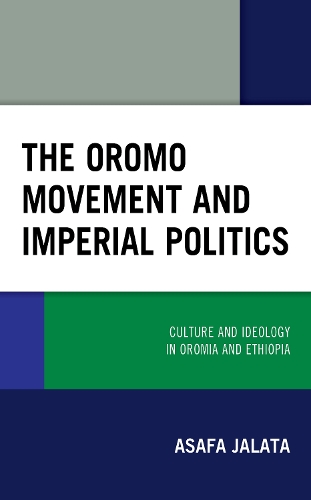
The Oromo Movement and Imperial Politics: Culture and Ideology in Oromia and Ethiopia
(Hardback)
Available Formats
Publishing Details
The Oromo Movement and Imperial Politics: Culture and Ideology in Oromia and Ethiopia
By (Author) Asafa Jalata
Contributions by Harwood D. Schaffer
Bloomsbury Publishing PLC
Lexington Books
13th February 2020
United States
Classifications
Professional and Scholarly
Non Fiction
African history
963.2
Physical Properties
Hardback
210
Width 160mm, Height 233mm, Spine 22mm
490g
Description
Focusing on the issue of the Oromo national struggle for liberation, statehood, and democracy, The Oromo Movement and Imperial Politics: Culture and Ideology in Oromia and Ethiopia critically examines the dialectical relationship between Ethiopian colonialism, Oromo culture, epistemology, politics, and ideology in the context of accumulated collective grievances of the Oromo nation. The book identifies chains of sociological and historical factors that facilitated the development of Oromummaa (Oromo nationalism). Asafa Jalata demonstrates how the movement is challenging and transforming Ethiopian imperial politics, as well as different forms and phases of the movement and its future direction. Currently, the Oromo are the largest ethno-national group and political minority in the Ethiopian Empire; they were colonized and incorporated into Ethiopia as colonial subjects in the last decades of the nineteenth century by the alliance of Abyssinian/Ethiopian colonialism and European imperialism. Since then, they have been treated as second-class citizens and have been economically exploited and culturally and politically suppressed. Despite the fact that the Oromo resistance to Ethiopian colonialism started with the process of colonization and subjugation, organized efforts by Oromo nationalists to liberate the Oromo people only began in the decades of the 1960s and 1970s, and presently are at the center of Ethiopian politics.
Reviews
This is Asafa Jalata's most magnificent scholarly piece yet. Digging into Oromo cultural, political and social traditions and incorporating them with concepts and theories of global nationalism in a way no scholar has done before, Jalata has not only unearthed the genesis of modern Oromo nationalism and identity but has also placed the Oromo national struggle in a broader perspective. The book is a solid case study of the rise of nationalism among the Oromo, the largest national group south of the Equator, and it can be used as an ideal textbook in comparative politics and nationalism courses.
--Getahun Benti, Southern Illinois University CarbondaleWith theoretical insights into social movements in general and the Oromo in particular, Dr. Jalata identifies the deep seated inequalities established by successive Ethiopian regimes that denied civil equality to the Oromo and others in the country and calls for a new multinational confederation or federal democracy to bring regional stability. The monograph is important for students of social movements and scholars and researchers on the Horn of Africa.
--Dan Ayana, Youngstown State UniversityAuthor Bio
Asafa Jalata is professor of sociology and global and Africana studies at the University of Tennessee, Knoxville.
